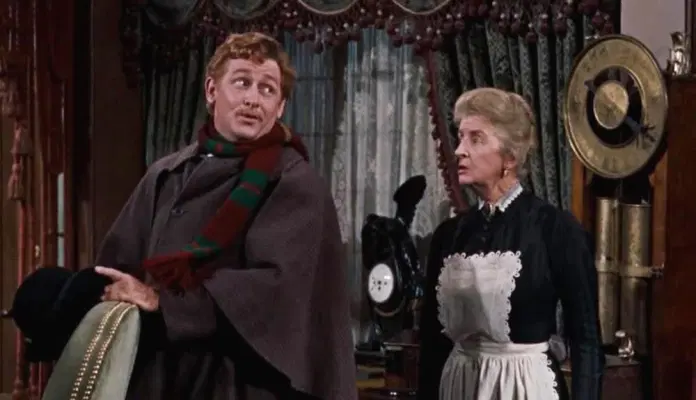To begin the world anew, you get three books. Which do you choose? That’s Filby’s question. Let’s explore it.
At the end of the movie The Time Machine (1960), David Filby discovers his friend George has departed in his time machine, again. Filby says to the housekeeper, “He’s gone back to the future, to begin a new world. But it’s not like George to go off without a plan. He must have taken something with him. Is anything missing?”

Mrs. Watchett replies, “Nothing…” and then sees a blank space on a bookshelf. “Except three books.” Filby asks, “Which three?” Mrs. Watchett replies, “I don’t know. Is it important?”
“Oh, I suppose not,” Filby answers. “Only…which three books would you have taken?”
There’s an interesting question. If you were headed to a place where people had no knowledge of civilization, where you had to start from scratch, what books would you take?
At this point, you may be thinking the premise of the question is so unlikely that it’s not worth thinking about. True, you won’t be travelling through time to restart civilization with only three books.
However, there are many similar—and more likely—scenarios in which you might need to make such a choice. Our civilization could collapse economically, militarily, through natural disaster, or some other way. You might be the one who saves the three most useful books needed to start up again.
Besides, it’s the thought process that’s important, not the specific problem. It’s good to know how to prioritize things when resources are highly constrained.
Therefore, to return to Filby’s question, here are some book topics to consider:
- Technology. You could bring a book about how things are made, how things work.
- Literature. You might bring the complete works of Shakespeare, or the works of Homer. One of those books would help your civilization understand what it is to be human.
- Culture. Maybe you’d take sheet music of our greatest composers, or books with pictures of timeless art and sculpture, if only to preserve them.
- Governance. You could bring a copy of the U.S. Constitution or a book about various forms of government.
- Religion. The Bible, Torah, or Quran. When starting a civilization, the spiritual side is important.
- Philosophy. You could pick a single philosopher or a general book on the subject. Philosophers consider the biggest questions of all.
- Survival. Perhaps a camping handbook or some other manual about survival techniques, growing and preparing food, etc.
- Science. Maybe you’d need an up-to-date science reference so your civilization can avoid rediscovering things.
- History. If you bring a history book, maybe this new civilization can learn from our mistakes.
There are certainly some categories I’ve missed. Even if you restrict your choices to the categories above, the limit of three books is frustrating. No matter which three books you choose, you’ll wish you’d brought others.
As for me, I think I’d bring one book on technology, a second on survival, and the third on systems of governance. I sure wish my time machine had room for more books!
With all the time in the world, I’m—
Poseidon’s Scribe
